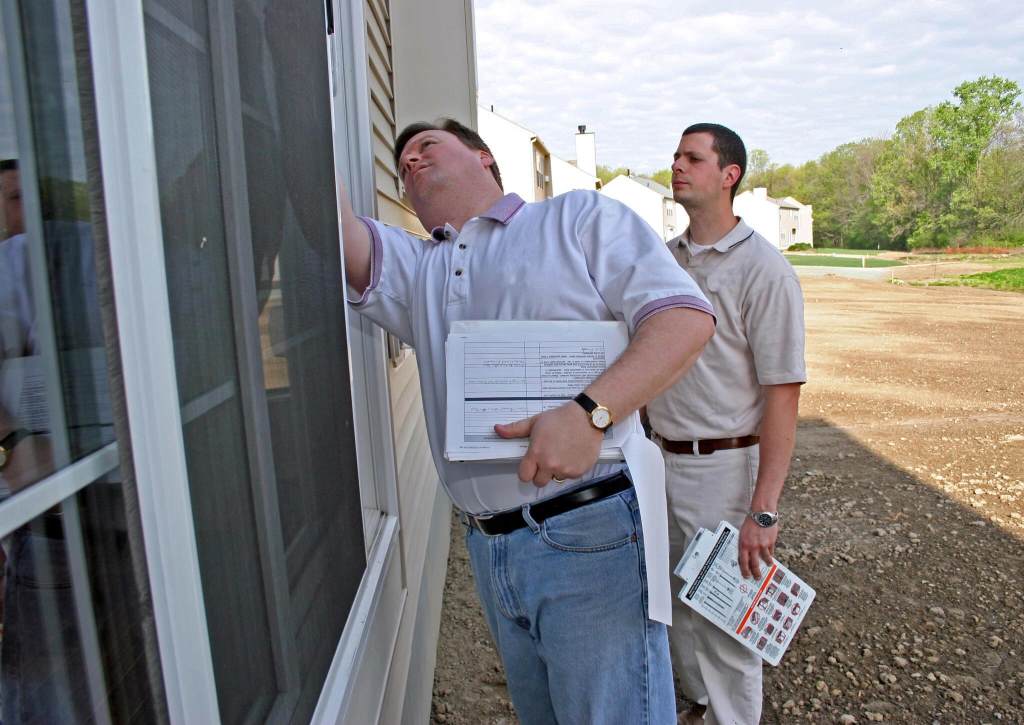
In the realm of real estate deals, home inspections are vital, for safeguarding the quality, security and worth of a property. Whether you’re, in the process of purchasing or selling a house a comprehensive inspection offers perspectives on its state pinpointing concerns and aiding both sides in making well-informed choices.
This piece will explore the role that house inspections play in maneuvering through the real estate industry covering everything from grasping its significance to the procedures and advantages it brings.
Understanding Home Inspections
Delve into the aspects of home inspections, understanding their importance, in evaluating the condition of a property building buyer confidence, and effectively navigating real estate transactions. Get to know the details today.

What Does a Home Inspection Entail
A typical home inspection entails a review of a property stability, mechanical systems and overall state. Inspectors examine elements like the roof, plumbing, electrical wiring, HVAC system, foundation and more.
- Definition: In terms a home inspection involves an assessment of a property structure, systems and components carried out by a certified inspector.
- The Purpose of Home Inspections: The main goal of a home inspection is to evaluate the state of the property, pinpoint any defects or shortcomings and offer an assessment of its safety, functionality and worth.
Significance of Home Inspections
Learn about the role played by home inspections in protecting investments, uncovering issues, negotiating repairs and offering assurance to buyers and sellers during real estate deals.
- Risk Reduction: By revealing issues before a real estate deal is sealed home inspections help lessen the chances of problems or costs cropping up.
- Empowered Decision Making: A comprehensive inspection equips both buyers and sellers, with the knowledge needed to make informed decisions based on the property condition and any required fixes or enhancements.
The Process of Home Inspection
The process of a home inspection involves an assessment of a property soundness, safety features and general state. Trained inspectors evaluate components such as the roof structure, foundation integrity, electrical installations, plumbing systems, HVAC units, and more. They provide reports to inform both buyers and sellers about any concerns that may need addressing.
Preparation Before Inspection
Preparation for a home inspection entails ensuring that the property is easily accessible and in a condition to thorough evaluation. This might involve tidying up Cleaning, making repairs and granting access to areas, like the attic basement, and utility systems.
- Setting Up an Appointment: Typically the buyer or seller arranges the inspection appointment, with an inspector coordinating with all parties involved in the property transaction.
- Arranging Access: The homeowner ensures that the property is reachable for the inspector on the agreed upon date and time providing keys or access codes if needed.

During the Inspection
Plunge into the stage of home purchasing— the inspection Learn about what goes on during this process, where skilled experts carefully evaluate the condition of a property and pinpoint any issues.
- Thorough Examination: The inspector conducts an examination of both the exterior and interior of the property looking at aspects such as foundation, roof, plumbing, electrical systems, HVAC, insulation and more.
- Documentation and Photography: The inspector records their observations through notes, photos and videos to document any issues or concerns noticed during the inspection.
Reporting and Evaluation
Get insights into the stage of reporting and assessment in home inspections. Understand how thorough evaluations and detailed reports assist both buyers and sellers in making informed decisions regarding property deals.
- Written Report: Following the inspection the inspector compiles their observations into a written report that outlines the state of the property and any defects or shortcomings identified.
- Analysis and Suggestions: The report might feature an analysis of inspection results along with suggestions for repairs, upkeep or further assessment, by professionals.
Benefits of Home Inspection
Discover the benefits of home inspections. From providing peace of mind to buyers to giving sellers an edge in negotiations, understand how this critical process protects investments and guides decision making.
Buyers Peace of Mind
Explore the reassurance that home inspections offer buyers. See how comprehensive assessments alleviate uncertainties empowering buyers to confidently navigate real estate transactions with informed choices.
- Knowledge and Transparency: A home inspection offers buyers an understanding of the property condition providing them with reassurance and certainty, in their investment choice.
- Risk Mitigation: By identifying issues on an inspection helps buyers steer clear of unexpected problems and expensive repairs post purchase.

Sellers Protection
Uncover how home inspections act as a shield for sellers. Learn how proactive evaluations enable sellers to address concerns, boost property value and engage in negotiations confidently during real estate transactions.
- Property Condition Disclosure: Sellers conducting a listing inspection can openly disclose the property condition promoting transparency and building trust with potential buyers.
- Remediation Opportunity: Detecting and fixing any issues before listing can enhance the property appeal to buyers. Reduce negotiation obstacles during the sales process.
Transaction Facilitation
Find out how home inspections streamline real estate deals. Understand how this crucial step eases negotiations, clarifies property conditions and promotes transparency, between buyers and sellers.
- Negotiation Support: Inspection results form a foundation for negotiation between buyers and sellers aiding in resolving concerns and agreeing on terms for the transaction.
- Efficient Closing Process: Addressing inspection related matters promptly streamlines the closing procedure minimizing delays and uncertainties, for all parties.
Conclusion
Getting a house inspection is crucial, in the real estate industry as it gives information on the state and quality of a property. Whether you’re purchasing or selling a house a detailed inspection provides assurance helps mitigate risks and enables informed choices. Recognizing the significance of house inspections and adhering to the steps highlighted in this guide empowers buyers and sellers to handle real estate transactions confidently and decisively.







